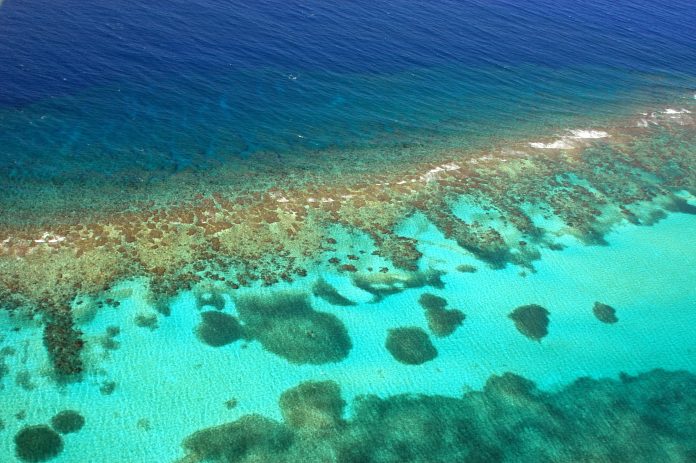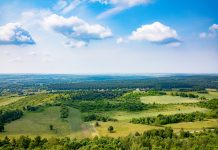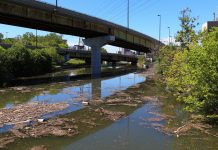Human activity is making the conservation of Caribbean coral reefs difficult – but a new algal threat is adding pressure to an already precarious situation
Corals are marine invertebrates that build large exoskeletons from which reefs are constructed. They are, unfortunately, so beautiful that humans regularly want to see them whenever they are able to. This leads to physical disruption and stress on the coral itself, which can kill these fragile but essential elements of the ecosystem.
How is the algae impacting the coral reef?
To grow new reef structures, free-floating baby corals first have to successfully attach to a stable surface. They prefer to settle on the crusty surface created by a specific type of friendly algae that grows on the local rocks. These coralline crustose algae, or CCA, acts as guideposts for the coral larvae, producing biochemical signals along with their associated microbial community, which entice the baby coral to attach itself to it.
“These PAC crusts have biochemical and structural defenses that they deploy to deter grazing from fish and other marine creatures,” explained Chen-Ming Fan, at the Carnegie Institution for Science.
“It is possible that these same mechanisms, which make them successful at invading the marine bio-space, also deter corals.”
The Caribbean experiment
For the past four years, the University of Oxford’s Bryan Wilson, Carnegie’s Chen-Ming Fan, and California State University Northridge’s Peter Edmunds have been studying the biology and ecology of peyssonnelid algal crusts, or PAC, in the US Virgin Islands, which are out-competing coral larvae for limited surface space and then growing over the existing reef architecture, greatly damaging the fragile ecosystems of the ocean.
What does this mean for Caribbean coral reefs?
The team wanted to find out how the golden-brown PAC impacts Caribbean coral reefs. What they found out, is that PAC creates a microbial community that is different from others which attract corals.
“There is a new genomic and evolutionary frontier to explore to help us understand the complexity of organismal interactions on the reef, both mutualistic and antagonistic,” added Fan.
“This alga seems to be something of an ecological winner in our changing world,” described lead author Wilson, noting that the various other threats to coral communities make them more susceptible to the algal crusts.
The research team believe that the algae could be a fatal thing for the coral reef – maybe. They are going to do more work to find out if the Caribbean reef will survive this new challenge.
Peter Edmunds further commented: “The coral and their ecosystem are so fragile as it is. They are under assault by environmental pollution and global warming. We have made their lives so fragile, yet they are sticking in there.
“And now this gets thrown into the mix. We don’t know if this is the straw that breaks the camel’s back, but we need to find out.”











